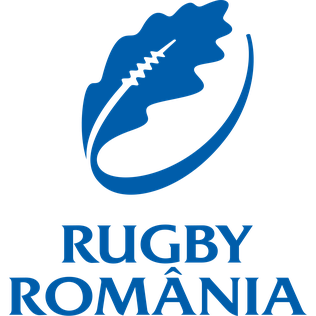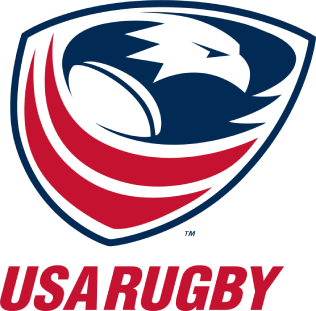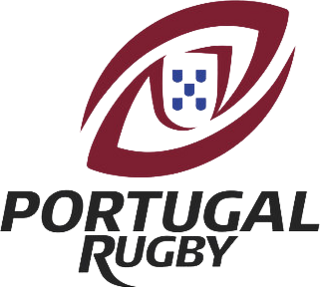| Union | Federation of USSR Rugby Union Players | ||
|---|---|---|---|
| |||
| First international | |||
(4 August 1974) | |||
| Largest win | |||
(30 October 1976) | |||
| Largest defeat | |||
(7 September 1991) | |||
The USSR national rugby union team represented the Soviet Union in rugby union until the early 1990s.
| Union | Federation of USSR Rugby Union Players | ||
|---|---|---|---|
| |||
| First international | |||
(4 August 1974) | |||
| Largest win | |||
(30 October 1976) | |||
| Largest defeat | |||
(7 September 1991) | |||
The USSR national rugby union team represented the Soviet Union in rugby union until the early 1990s.
Although tournaments such as the Soviet Cup and the Soviet Championship existed, rugby never became a major sport in the USSR. Rugby union was the more popular of the two rugby codes, however, as rugby league only began being played following the collapse of the Soviet Union.
Rugby football was played in the Russian Empire as early as 1884; however, the first official match, played in Moscow, did not take place until 1923. Because of the Russian Revolution, some Soviet/Russian players emigrated and/or ended up playing for foreign sides, a notable example being Prince Alexander Obolensky (Александр Сергеевич Оболенский) who played for Oxford and England in the 1930s – he was the scorer of 2 tries on his England debut in their win over New Zealand in January 1936. His noble birth precluded him from playing in his home country and his family had fled the country when he was only a year old.
In 1935 the Moscow Championship was initiated, followed by the first Soviet Championship which took place in 1936.
In 1949, rugby union was forbidden throughout the USSR during the "fight against cosmopolitanism". Competition was resumed in 1957, and the Soviet Championship recommenced in 1966. In 1975, the Soviet national team played their first ever match. [1]
During the 1970s and 1980s, the Soviet team began to improve their performances, often coming second to France, or third to Romania in the FIRA tournament. The team were never given the opportunity to play a tier 1 nation where test caps were awarded.
The organisers of the 1987 Rugby World Cup had intended to invite the USSR as one of the participants. However, before the invitation could be made, the USSR refused to take part on political grounds, allegedly due to the continued IRB membership of South Africa. The first tournament was by invitation rather than qualification, and despite successes against teams such as Italy and Romania in the years leading up to the inaugural Cup, the USSR did not enter.
The Soviet team did not attempt to qualify for the 1991 Rugby World Cup finals. They played their last game against Spain in the FIRA tournament in November 1991, shortly before the country's own dissolution. The USSR's successor was briefly the Commonwealth of Independent States, after which the former constituent states formed their own national teams.
| Year(s) | Winner | Second place | Third place |
|---|---|---|---|
| 1973–74 | |||
| 1974–75 | |||
| 1975–76 | |||
| 1976–77 | |||
| 1977–78 | |||
| 1978–79 | | ||
| 1979–80 | |||
| 1980–81 | | ||
| 1981–82 | |||
| 1982–83 | | ||
| 1983–84 | |||
| 1984–85 | | ||
| 1985–87 | | ||
| 1987–89 | | ||
| 1989–90 | | ||
| 1990–92 | |||
| 1992–94 | |||
| 1995–97 | |||
In 1991, in preparation for the Rugby World Cup New Zealand hosted short tours by Western Samoa, Fiji, Romania and the USSR. There were no matches of Test status played by New Zealand against the tourists, but a side designated "New Zealand XV" met both the Romanians and Soviets, and both opponents awarded caps for the XV game. The tours gave the New Zealand selectors a chance to gauge the form of players likely to be on the periphery of selection for the World Cup.
The USSR tour party comprised 26 players and was led from the front-row by Sergei Molchenov. They won four and lost four matches:
| Date | Opposition | Score | Result | Location |
| May 25 | Nelson Bays | 25–24 | Won | Nelson |
| May 29 | Marlborough | 23–16 | Won | Blenheim |
| June 1 | Canterbury | 15–73 | Loss | Christchurch |
| June 5 | Mid Canterbury | 33–10 | Won | Ashburton |
| June 8 | Otago | 11–37 | Loss | Dunedin |
| June 12 | Taranaki | 16–39 | Loss | New Plymouth |
| June 16 | New Zealand XV | 6-56 | Loss | Hamilton |
| June 18 | King Country | 22-15 | Win | Te Kuiti |
The teams in the "test" match:
June 16, 1991 at Rugby Park, Hamilton
New Zealand XV 56 (8G 2T) – USSR 6 (1PG 1DG)
New Zealand XV: E J Crossan; E Clarke, W K Maunsell, T D L Tagaloa; A F McCormick, J P Preston; J A Hewett; O M Brown, N J Hewitt, M R Allen, R M Brooke, D W Mayhew, M P Carter, W T Shelford (captain), W R Gordon
Tries: McCormick (2), Crossan (2), Maunsell (2), Tagaloa (2), Shelford, Carter
Conversions: Crossan (8)
Soviet Union: V Voropaev; A Zakarliuk, I Kuperman, A Kovalenko, I Mironov; S Boldakov, A Bychkov; E Kabylkin, S Molchenov (captain), R Bikbov, S Sergeev, E Ganiakhin, V Negodin, A Ogryzkov, A Tikhonov
Replacements used: Y Nikolaev, V Zykov
Penalty Goal: Boldakov
Dropped Goal: Boldakov
Referee: Mr D J Bishop
In September, the USSR were guests of the RFU and played the Combined London Old Boys at Croxley Green (OMTs' ground) before meeting an England XV in a World Cup warm-up game on September 7, 1991 at Twickenham where they lost 53–0 to a full-strength non-cap XV side led by Will Carling.
Their last representative matches as a united Soviet side were during the 1991–92 season. A team labelled "CIS" fulfilled their remaining FIRA Championship fixtures against Italy, Spain, Romania and France A.
Russia has competed as a separate entity at the international level since 1992.
200 Soviet players became Masters of Sport. Two notable ones are:
The rugby teams of the USSR's successor states have had varying success.
Initially, the former USSR competed under the Commonwealth of Independent States banner, but this itself terminated in 1992. It had played four matches.
The most successful "successor" rugby team has been Georgia, which competed in the 2003 Rugby World Cup, 2007, 2011, 2015 and 2019. They had a respectable performance against Ireland and defeated Namibia twice in 2007 and 2015, defeated Tonga 17-10 in 2015. The Rugby World Cup, coincidentally, got going at around the point that the Soviet Union was disintegrating – no other ex-Soviet team other than Georgia had ever qualified until 2011 when Russia qualified, and the early World Cups were also smaller tournaments. The Georgia Rugby Union was founded in 1964, but did not compete as a national team during the Soviet Era.
As of 3 March 2008, however, Russia's form had improved greatly, being placed at 17th position in the world rankings, ahead of Portugal, the USA, Japan, and coming one point behind Romania. [2]
After the 2022 Russian invasion of Ukraine, World Rugby and Rugby Europe suspended Russia from international and European continental rugby union competition. In addition, the Rugby Union of Russia was suspended from World Rugby and Rugby Europe. [3] [4]
The following successor teams are in the European Nations Cup:

The Georgia national rugby union team, nicknamed The Lelos, represents Georgia in men's international rugby union. The team is administered by the Georgian Rugby Union and takes part in the annual Rugby Europe Championship and the Rugby World Cup, which takes place every four years.

The Romania national rugby union team represents Romania in men's international rugby union competitions. Nicknamed Stejarii, the team is long considered one of the stronger European teams outside the Six Nations. They have participated in all but one Rugby World Cup and currently compete in the first division of the European Nations Cup, which they won in 2017. Rugby union in Romania is administered by the Romanian Rugby Federation.

The United States men's national rugby union team, nicknamed the Eagles, represents the United States of America Rugby Football Union in men's international rugby union. USA Rugby is the national governing body for the sport of rugby union in the United States, and is a member of Rugby Americas North, one of six regional governing bodies under World Rugby. Until rugby returned to Olympic competition, with sevens at the 2016 Rio Games, the United States was the reigning Olympic rugby champion, having defeated the one other competitor in 1920 and the two other competitors at the 1924 Summer Olympics.
The Rugby Europe International Championships is the European Championship for tier 2 and tier 3 rugby union nations.

The Spain national rugby union team, nicknamed Los Leones, represents the Spanish Rugby Federation in men's international rugby union competitions. The team annually takes part in the European Nations Cup, the highest European rugby championship outside the Six Nations. The national side is ranked 20th in the world.

The Portugal national rugby union team, nicknamed Os Lobos, represents Portugal in men's international rugby union competitions. The team, as well as all rugby union in Portugal, is administered by the Federação Portuguesa de Rugby.

The Russia national rugby union team, nicknamed Medvedi, represented Russia in men's international rugby union international competitions. The team is administered by the Rugby Union of Russia (RUR). The RUR is considered the official successor union of the Soviet Union by World Rugby and the combined CIS team which played in the early 1990s. Since 1992, the team has played as Russia. Its first test match as Russia was against the Barbarians in Moscow in June 1992 and the country's first test against an official Test nation was against Belgium later that same year.

Rugby union in Georgia is a popular team sport. Rugby union is considered one of the most popular sports in Georgia.

The Lithuania national rugby union team represents Lithuania in men's international rugby union competitions. Nicknamed The Knights (Vytis), is considered one of the relatively stronger tier 3 teams in European rugby and currently compete in the second division of the Rugby Europe International Championships in the Rugby Europe Trophy, a competition which is just below the Rugby Europe Championship where the top 6 countries in Europe compete. They are yet to participate in any Rugby World Cup and play in black with a pattern involving the colours red, yellow and green.

Rugby union is a moderately popular team sport played in Romania with a tradition of more than 100 years. In past eras, the game had been more popular and Romanian national teams had been relatively highly ranked in world rugby, but their standing declined since the dawn of professionalism and the end of communism. The Romanian men's national team are currently 20th in the World Rugby Rankings as of 19 March 2023.

The Ukraine national rugby union team represents Ukraine in men's international rugby union competitions. Nicknamed The Cossacks, is one of the tier 3 teams in Europe that currently compete in the second division of the Rugby Europe International Championships in the Rugby Europe Trophy, a competition which is just below the Rugby Europe Championship where the top 6 countries in Europe compete. They are yet to participate in any Rugby World Cup.

Rugby union in Armenia is a growing sport. The national team is currently unranked in the world rankings, which records only the top ninety-six countries. The governing body for Armenia is the Rugby Federation of Armenia, headquartered in Yerevan.
The most successful teams in women's international rugby union have been England, France, and New Zealand.
Rugby union in Latvia is a minor but growing sport. During the pre-independence period, Latvia was not a centre for the game but nonetheless Latvia managed to qualify for the 1993 Rugby World Cup Sevens - which may be seen as the highest point it has yet reached.

Rugby union in the Soviet Union was a moderately popular sport. It was most popular in the Georgian SSR; parts of the Russian SFSR such as Moscow and certain regions in Siberia like Krasnoyarsk; and Alma-Ata, the capital of the Kazakh SSR. Rugby enjoyed a more limited popularity in the Ukrainian SSR, Minsk in the Byelorussian SSR and parts of the RSFSR such as Leningrad and areas in Southern Russia, including Krasnodar. Rugby gained a significant following due to the vast size of the Soviet Union, but was never a major sport; despite many attempts to develop the sport, which Soviet citizens came to nickname the "leather melon" due to the shape of the ball. Still, an early championship in 1960 gives an idea of the sheer scale of Soviet rugby: one hundred teams from over thirty cities took part.
Alexandre Tichonov is a former rugby union international who represented the Soviet Union in the 1980s and early 1990s. He had the distinction of being asked to play for the Barbarians on their Easter 1990 tour of Wales and was one of two Soviet players, along with Igor Mironov to play in the Rest of Europe XV in 1990 against the Four Home Unions XV at Twickenham Stadium.

Rugby Europe is the administrative body for rugby union in Europe. It was formed in 1999 to promote, develop, organise, and administer the game of rugby in Europe under the authority of World Rugby. However, it is not responsible for the organisation of the Six Nations Championship or the competitions run by European Professional Club Rugby.
The 2021 Rugby Europe Championship was the 5th Rugby Europe Championship, the annual rugby union competition contested by the national teams of Georgia, Portugal, Romania, Russia, Spain and the Netherlands, and the 52nd edition of the competition. Due to the COVID-19 pandemic, the tournament spanned from March to December, compared to previous editions where the tournament would have been held between February and March.
The 2022 Rugby Europe Championship was the sixth Rugby Europe Championship, the annual rugby union for the top European national teams outside the Six Nations Championship, and the 52nd edition of the competition.
The 2023 Rugby Europe Championship was the seventh Rugby Europe Championship, the annual rugby union for the top European national teams outside the Six Nations Championship, and the 53rd edition of the competition.